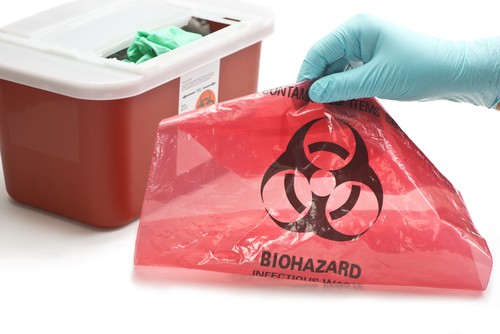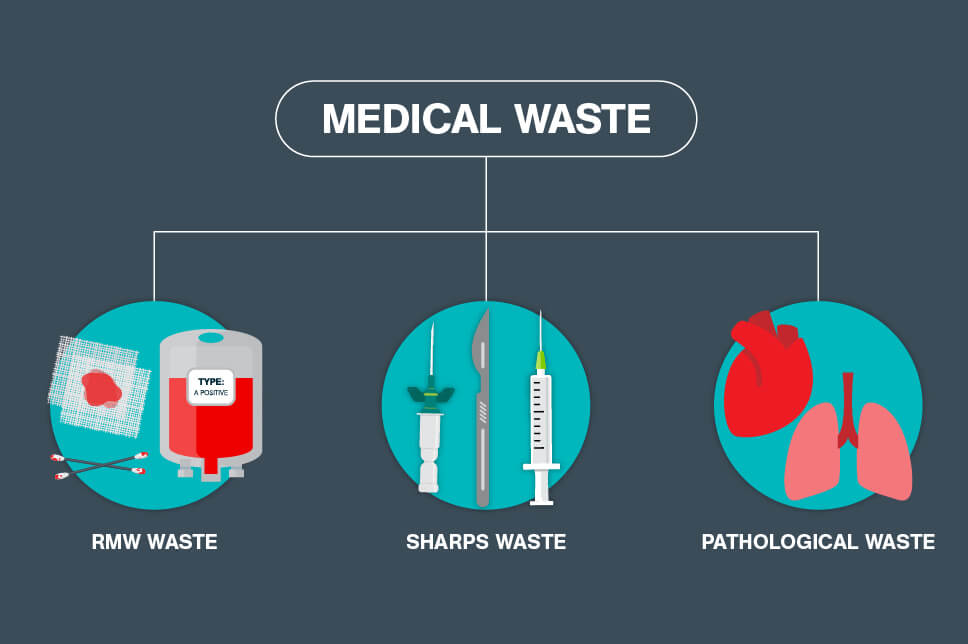Making Certain Safe Handling and Disposal of Medical Waste
Guaranteeing risk-free handling and disposal of clinical waste is of extremely important value in health care settings. Improper management of clinical waste can posture considerable risks to the environment, public wellness, and health care workers. In this intro, we will explore the relevance of appropriate clinical waste management, the risks linked with incorrect handling and disposal, as well as the standards and methods that can be applied to ensure its risk-free disposal.
Relevance of Correct Medical Waste Management
Proper medical waste administration is of utmost significance in making sure the safety and health of medical care experts, individuals, and the basic public. Medical waste describes any waste produced by medical care facilities during the diagnosis, treatment, or immunization of animals or human beings. This waste can position serious health threats otherwise handled and disposed of appropriately.
One of the key factors why proper clinical waste administration is essential is to avoid the spread of transmittable diseases. Medical waste, such as utilized needles, polluted dressings, and biological materials, can carry hazardous virus. Otherwise taken care of and dealt with properly, these pathogens can be transmitted to medical care employees, clients, waste trainers, and even the public, causing the possible outbreak of conditions.
Furthermore, proper medical waste monitoring assists secure the environment - medical waste disposal service. Clinical waste consists of hazardous products, consisting of chemicals, pharmaceuticals, and contaminated compounds. When not managed suitably, these substances can pollute dirt, water bodies, and the air, posing a significant threat to communities and public health and wellness
Additionally, efficient medical waste administration guarantees compliance with local guidelines and international requirements. Governments and regulatory bodies have established methods and standards to guarantee the secure handling, storage, transport, and disposal of medical waste. Following these policies is important to stay clear of legal consequences and maintain the online reputation and credibility of health care centers.
Risks of Improper Handling and Disposal

If clinical waste is not correctly disposed of,Individuals can also be subjected to these contagious illness. If infected needles or various other sharps are not disposed of in designated puncture-proof containers, they might inadvertently prick patients, leading to possible infections. Additionally, if medical waste is not segregated appropriately, there is a danger of cross-contamination in between different kinds of waste, further increasing the chances of illness transmission.
Improper disposal of clinical waste can also have destructive impacts on the environment and the public. If medical waste is not treated and disposed of correctly, it can infect water sources, soil, and air, resulting in the spread of contaminants and conditions. This can have long-lasting consequences on ecological communities and public wellness.
Standards for Safe Handling of Medical Waste
Carrying out effective protocols for the risk-free handling of medical waste is necessary in making certain the protection of medical care specialists, people, and the public. These standards are essential in reducing the dangers related to the handling and disposal of medical waste, such as infections, injuries, and environmental air pollution.
Most importantly, health care centers should establish an extensive waste administration plan that sticks to regional, nationwide, and worldwide laws. This strategy needs to include clear instructions on waste segregation, packaging, transport, storage, and labeling. It is crucial to separate different sorts of waste, such as sharps, contagious products, pharmaceuticals, and non-hazardous waste, to stop cross-contamination and promote risk-free disposal.
Additionally, healthcare workers must receive comprehensive training on appropriate waste handling strategies. They must be enlightened on the prospective hazards of clinical waste, the appropriate use personal safety equipment (PPE), and the right treatments for dealing with, moving, and dealing with different kinds of waste.
Furthermore, healthcare facilities must consistently check and examine their waste administration techniques to make certain conformity with standards. This includes carrying out regular assessments, examining waste handling procedures, and offering feedback and training to team member.
Effective Techniques for Waste Disposal
To guarantee the secure handling and disposal of clinical waste, it is necessary to use reliable approaches for waste disposal. Medical waste can posture significant dangers to public health and wellness and the setting if not handled and gotten rid of appropriately. Consequently, health care facilities and waste administration organizations should implement appropriate strategies to reduce these dangers.
It includes dividing various types of clinical waste based on their features. Healthcare centers need to give clear guidelines and training to staff participants on how to segregate waste appropriately.

In addition, medical care centers should collaborate with qualified waste management companies to make certain appropriate disposal of clinical waste. These business have the competence and devices required to securely manage and dispose of medical waste in conformity with laws and finest methods.
Training and Education And Learning for Healthcare Professionals
Medical care experts play an important function in ensuring the risk-free handling and disposal of medical waste with detailed training and education. It is necessary for medical care carriers to have a deep understanding of the prospective threats related to medical waste and the correct methods for its administration. By getting correct training, health care professionals can lessen the prospective transmission of transmittable illness, stop ecological contamination, and safeguard both themselves and the basic public.

Moreover, training programs need to stress making use of personal protective equipment (PPE) and appropriate hand hygiene methods when handling medical waste. medical waste removal. Medical care professionals ought to know how to properly use and get rid of of PPE to shield themselves from potential exposure to harmful products. They must also be informed on the relevance of normal handwashing and the proper use hand sanitizers to minimize the spread of infectious illness
Continuing education and regular updates on medical waste management techniques are important for health care experts. As guidelines and standards advance, it is vital to keep healthcare providers notified about any modifications in methods and ideal techniques. This will certainly make sure that they stay updated and keep a high standard of safety and security in disposing and managing of clinical waste.
Final Thought
In conclusion, proper handling and disposal of medical waste is important to ensure the safety and security of healthcare experts, patients, and the setting. Ignoring to adhere to laws and guidelines can cause numerous threats and threats. Applying reliable techniques for waste disposal and supplying appropriate training and education and learning for healthcare experts are vital in keeping a safe medical care atmosphere. By sticking to these practices, we can mitigate the potential dangers associated with clinical waste.
Clinical waste refers to any type of waste produced by healthcare centers throughout the medical diagnosis, treatment, or booster shot of pets or humans. If medical waste is not segregated appropriately, there is a threat of cross-contamination between different types of waste, further increasing the possibilities of illness transmission.
It is essential to separate various types of waste, such as sharps, infectious products, drugs, and non-hazardous waste, to avoid cross-contamination and advertise safe disposal. WasteX Medical Waste Disposal.
To guarantee the risk-free handling and disposal of medical waste, it is necessary to employ efficient approaches for waste disposal. Additionally, health care centers must develop a regular waste collection and transportation routine to protect against waste buildup and decrease the threat of mishaps or contamination.